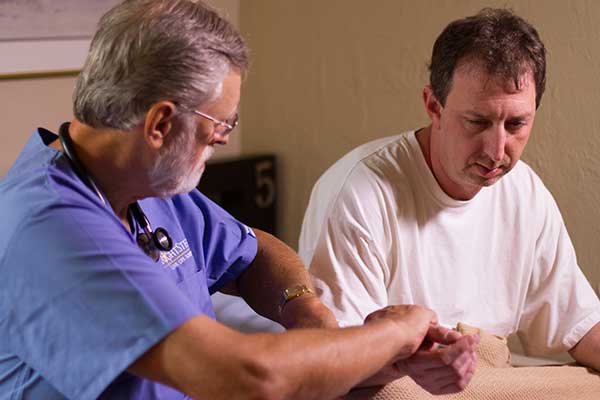Deciding to enter a recovery program is challenging and life-altering. As friends and family, it’s essential to support those in recovery by asking the right questions. While many questions can be hurtful and painful, many questions can aid in deepening a relationship with a recovering addict. If you’re wondering what questions to ask an addict in recovery, explore more below.
Questions to Ask an Addict in Recovery
Many people may be nervous to ask questions to a loved one in recovery. They may fear saying the “wrong thing” or feel responsible for a person struggling’s emotional response. It’s essential to avoid judgemental, crude, or hurtful questions.
However, there are also a lot of questions that someone in recovery may appreciate. It’s important to note that everyone is an individual, but the following questions could be a guide as to how to start a conversation with a loved one in recovery:
- What have been the most important things in your recovery?
- What has been one of your biggest successes since entering recovery?
- How can I best support you during this time?
- Are there any self-care techniques that help to keep you grounded and sober?
- What are some healthy coping mechanisms that you use to manage uncomfortable feelings?
- What would you like me to know about recovery?
- Do you have any tips for maintaining sobriety in early recovery?
- How has your life changed since entering recovery?
- What are some activities that bring positivity into your life?
- Are there any ways that I can help you to stay motivated in your recovery journey?
Asking the right questions is a great way to show your loved one that you care and are invested in their success. By understanding their struggles and triumphs, it will foster deeper communication and lead to more meaningful relationships. Supportive conversations are a key element of successful recovery, and asking the right questions is an important part of the process.
Other Ways to Support a Recovering Addict
Questions are only part of the equation when it comes to supporting someone in recovery. It’s also important to demonstrate understanding and empathy during conversations and actively listen without judgment. Offer emotional support by giving them space or simply being present and listening attentively. Additionally, offer practical help by running errands, attending therapy sessions with them, or helping out with other duties.
Ultimately, it’s important to remember that a person in recovery is strong and capable of achieving great things. Offer hope and positivity by celebrating their accomplishments and successes along the way. Continue to offer emotional support throughout the recovery process; your loved one will appreciate the effort and support.
Recovery with Promises Right Step in Texas
At Promises Right Step, we strive to provide the best possible care for our clients. We offer a range of treatment programs catered to your individual needs and recovery goals.
These include the following:
- Holistic therapies
- Mental health counseling
- Intensive outpatient program (IOP)
- Aftercare planning
We understand that recovery is a journey, and our goal is to equip you with the right tools and resources to achieve lasting sobriety and a life of wellness. We believe in providing compassionate care tailored to each individual’s unique situation.
Promises Right Step can provide helpful insights if you’re looking for more resources to best support those in recovery. Our knowledgeable team can answer any questions and offer tips on making a recovery as successful as possible.
Call us at 17135283709 or fill out our online contact form to get more personalized information on our programs and how they can help. We’re here to help you make that first right step.






